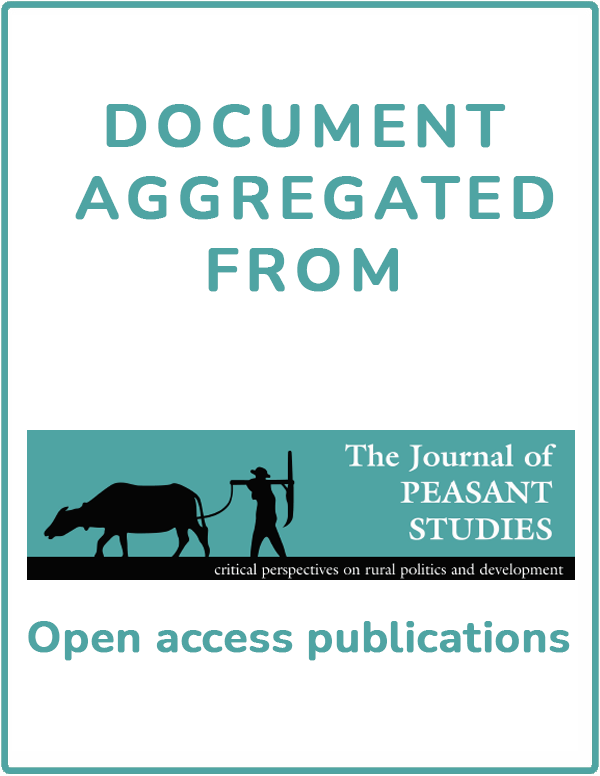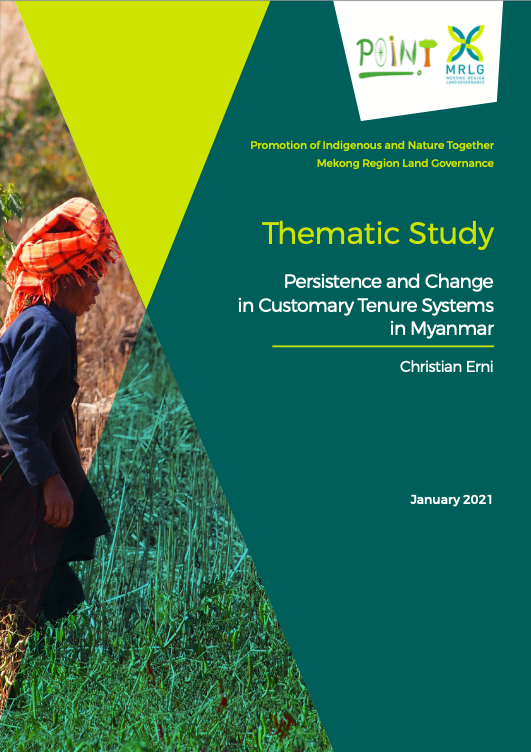Oil palm landscapes are often characterised by land conflicts. Multi-stakeholder platforms (MSP) may be a promising means to contribute to conflict resolution. However, the merits of MSPs are limited in contexts with strong power imbalances and entrenched conflict histories. This study analyses…
We estimate demand elasticities for fish in Myanmar by fish supply sources and household groups, using a multistage budgeting approach combined with quadratic almost ideal demand system (QUAIDS). Our findings show that fish demand from all supply sources and household groups has increased with…
Htee Pu village in the Dry Zone was designated as Climate-Smart Village, where participatory action research was undertaken from 2018 to 2020 to find solutions to climate change's challenges to local farmers' lives and livelihoods. A Dry Zone is typically characterized by a lack of…
Much of rural Myanmar remains under local Customary Tenure Systems (CTS), particularly in upland ethnic areas. Yet CTS lack legal recognition and are increasingly vulnerable to appropriation. This paper examines how, since 2016, communities and civil society organisations (CSOs) across Shan…
The Annual Country Reviews reflect upon current land relations in the Mekong Region, and has been produced for researchers, practitioners and policy advocates operating in the field. Specialists have been selected from Cambodia, Laos, Myanmar, Thailand and Vietnam to briefly answer the following…
The intersection between land grabs and climate change mitigation politics in Myanmar has created new political opportunities for scaling up, expanding and deepening struggles toward ‘agrarian climate justice’. Building on the concepts of ‘political opportunities’ and ‘rural democratization’ to…
Based on a broad review of the existing documentation, the study describes the diversity of customary tenure systems in various regions of Myanmar; it looks at what they have in common and how they differ. It investigates the processes that affect or weaken the community jurisdiction over their…
The Climate-Smart Village (CSV) features a participatory platform that helps address climate change impacts on agriculture in farming communities, taking into consideration the climate-smart agriculture (CSA) options which are ecologically, culturally and gender-responsive. Its design includes…
The International Institute of Rural Reconstruction (IIRR) undertook participatory action research in Myanmar to establish climate-smart villages (CSVs) in four unique agro-ecologies. This research was funded by CGIAR-CCAFS and the International Development Research Center in Canada (IDRC).…
This paper looks at scalar politics, power struggles, and institutional emergence in Daw Lar Lake in Karen state, Myanmar. It brings to light tensions between centralized and decentralized approaches in the country’s natural resource governance, and how these are manifested in the current…
Landscape Approaches have been proposed as a transferable model of multi-stakeholder governance, yet assume conditions of ideal speech, trust, and transparency that seem untransferable to authoritarian regimes. This paper argues that building Landscape Approaches under authoritarian conditions…
In the last decade, Myanmar’s Kachin State has seen a boom in tissue-culture banana plantations driven by cross-border Chinese investors. This Case Study compiles field research and publicly available knowledge about the scale of the production and its economic, social and environmental…






